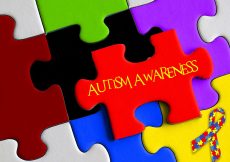June 13th, 2022
Keeping up with last week’s theme observing Child Safety Week, a new study shows that parents don’t always follow the standard pediatric guidelines for safe sleep environments for infants. Despite the success of the American Academy of Pediatrics “Back to Sleep” campaign that significantly reduced the incidence of sudden infant death syndrome, Heidi Splete says many parents persist in using unsafe practices such as prone positioning and bed sharing:
Fewer than 10% of parents followed recommended safe sleep practices for their infants aged 12 months and younger at both sleep onset and after nighttime waking, based on data from a survey of 1,500 parents published in Pediatrics.
Three parent-reported sleep practices were assessed at two separate time periods each night — sleep onset and after nighttime awakening — based on:
1. Positioning — Putting babies to sleep on their back (supine) is recommended.
2. Separate sleep spaces — Bed sharing is strongly discouraged.
3. Use of an approved surface in a safe location — crib, bassinet, cradle, and play yard are all acceptable; chair, couch, and adult bed are not.
The majority of parents who were surveyed started the night by using one or more safe sleep practices. At bedtime (sleep onset), 67% followed the recommendations by placing their babies on the back to sleep, 72% used separate sleep spaces, and 71% used an approved surface and location. Aside from the fact that these aren’t overwhelming majorities, the numbers get worse after babies wake up in the middle of the night, when parents admitted shifting their babies to unsafe sleep situations.
Only 44% of parents surveyed met all three safe sleep practices at sleep onset; only 9% met the three criteria at both time points, meaning many parents abandon the idea of a safe sleep environment for their infants after they wake up in the middle of the night. Splete cites cultural factors that may be at play:
In a multivariate analysis, the researchers examined the demographics associated with changes in sleep practice after nighttime waking. Parents younger than 25 years, first-time parents, those who identified as Black non-Hispanic or Hispanic, smokers, and those with preterm infants (less than 37 weeks’ gestation) were more likely to change sleep practices after nighttime waking. However, parents who reported a safe sleep practice at sleep onset were more likely to do so after nighttime waking.
The researchers urged pediatricians to step up their preaching to parents about the importance of following the “ABCs” of safe sleep environments (Alone, on the Back, in a Crib), which The PediaBlog has covered several times including here.
Will following these simple “ABCs” prevent every tragic episode of SIDS? The answer is, unfortunately, probably not. We’ll learn why tomorrow on The PediaBlog.





































